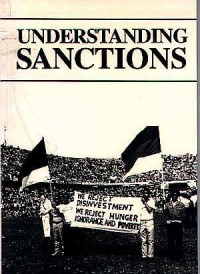
| Dane szczegółowe: | |
| Wydawca: | The International Freedom Foundation |
| Oprawa: | miękka |
| Ilość stron: | 80 s. |
| Wymiar: | 148x210 mm |
| EAN: | 9781871117004 |
| ISBN: | 1-871117-00-3 |
| Data: | 2005-12-29 |
Opis książki:
Rarely a day goes by without a morning newspaper or the evening newscast running a story on South Africa. The issue has, of late, become a preoccupation of many of our churches, universities, think-tanks and lawmakers. Commentaries and analyses abound. Indeed, "South Africa watching" is a growth industry.
Yet it is all so predictable. The reporter shocks us with graphic tales of violence and injustice; the activist, whether he be a churchman or a policy analyst, tells us that something must be done to correct the injustice; and the politician takes to the stump to prescribe the solution - sanctions.
The news consumer sits passively by as his government imposes sanctions. His guilty conscience is assuaged because his country is, after all, doing something to better the lives of black people in Africa - or so he thinks.
In reality, economic sanctions as an instrument of foreign policy rarely, if ever, achieve their intended effect. The sanctioned country, the behavior of which is distasteful or inimical to the sanctioning country, usually finds a way around the sanctions, or simply tightens its belt. And though the application of sanctions allows the sanctioning country to feel good, such application is usually an indication that the sanctioning country lacks any substantive means to influence the target country`s behavior.
The champions of sanctions maintain that their strategy is the only tool available to the West to eliminate South Africa`s discriminatory system of apartheid. They argue that once the international community completely isolates South Africa -denying that country access to Western capital, technology, goods and export markets - the white minority government will drop to its knees and turn power over to the black majority.
What the pro-sanctions lobby fail to recognise is that apartheid is a dying institution; and that the free market mechanisms of commerce and industry are what is killing it. Sanctions only delay apartheid`s fmal demise by denying black South Africans, through unemployment, hunger and related miseries, the very weapon which will liberate them - economic power. The ultimate demise of apartheid will be found in the creation of more jobs and greater wealth for black South Afri-cans, not in their impoverishment.
As UNDERSTANDING SANCTIONS shows, most black South Africans are aware of this reality. It is only a vocal minority within South Africa`s black communities which actually endorses sanctions. And they are allied with those who cold-bloodedly calculate that the man with an empty stomach is more easily turned into a revolutionary.
The reader will learn that to increase the suffering of those already oppressed is neither moral nor desirable. To destroy that which remains of apartheid`s collectivist and racist institutions by extending opportunity and freedom to all, irrespective of race, is both.
Jack Abramoff, International Chairman, International Freedom Foundation, WASHINGTON D.C.
Książka "Understanding sanctions" - David Hoile - oprawa miękka - Wydawnictwo The International Freedom Foundation.

